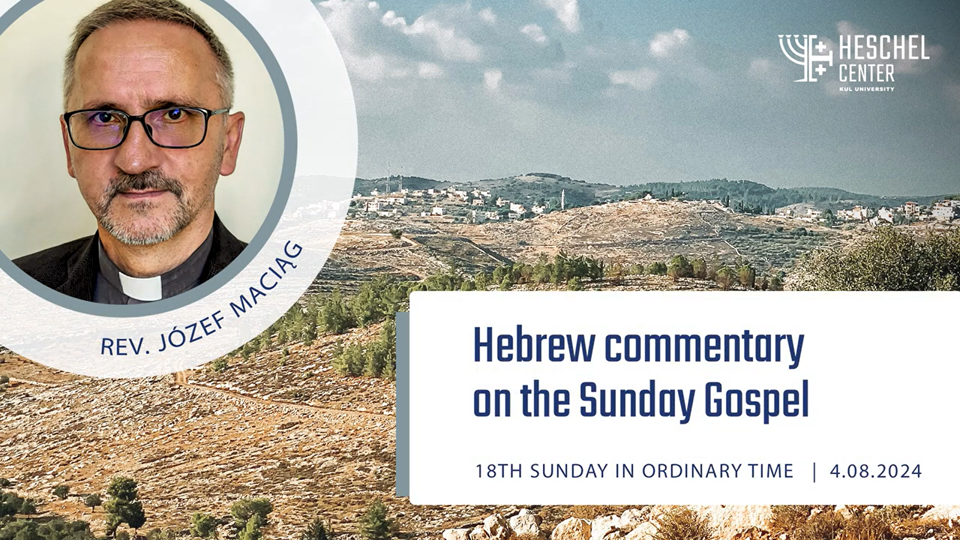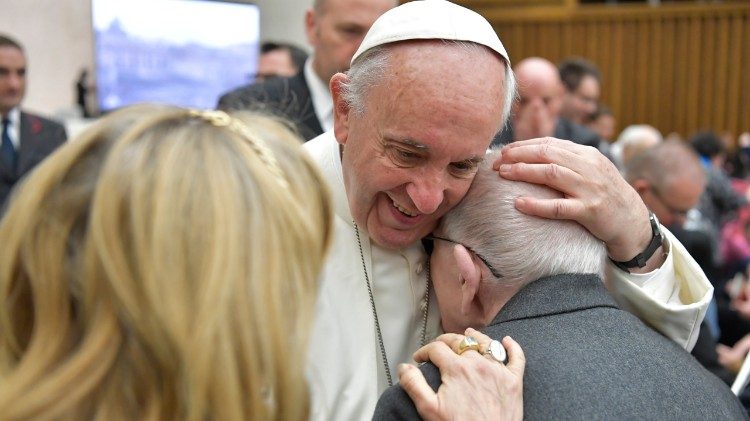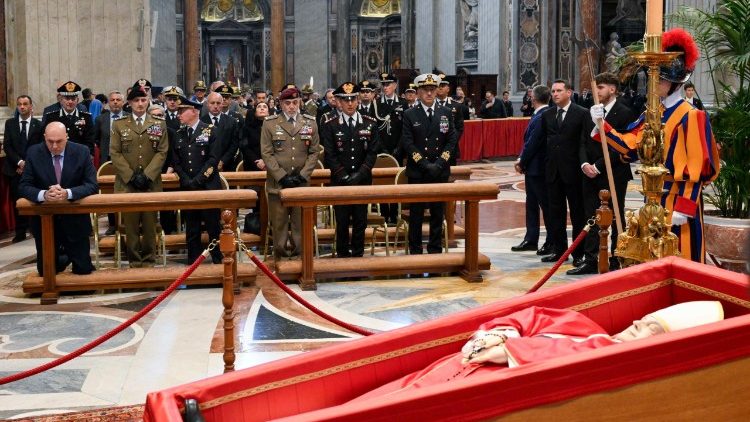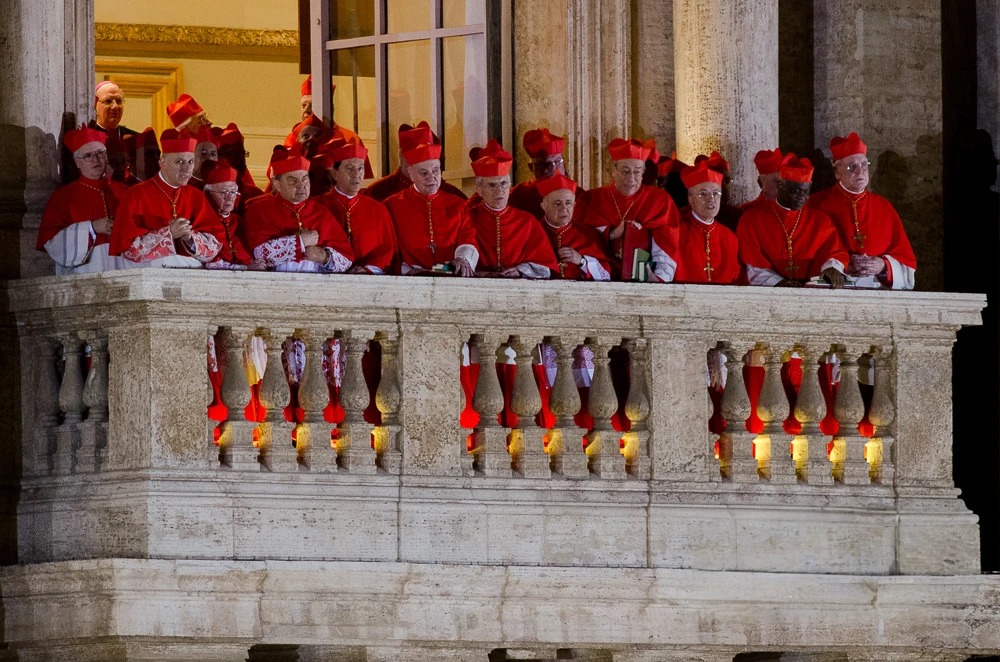Heschel Centre for Catholic-Jewish Relations at the Catholic University of Lublin
03 August, 2024
5 min
Gratitude to God for all the gifts – an important part of Christianity and Judaism
“The blessing over bread (Hebrew: beracha) is firmly rooted in Hebrew tradition as a daily expression of gratitude to God for the gift of life and all the gifts that sustain this life, of which bread is the symbol. Every pious Jew in those days and today prays before meals. This blessing has entered the […]

“The blessing over bread (Hebrew: beracha) is firmly rooted in Hebrew tradition as a daily expression of gratitude to God for the gift of life and all the gifts that sustain this life, of which bread is the symbol. Every pious Jew in those days and today prays before meals. This blessing has entered the Catholic Mass liturgy in a very similar wording”, stresses Rev. Józef Maciąg, a pastor and guide of pilgrimage groups in the Holy Land, in his commentary for the Catholic University of Lublin Heschel Center for the Sunday, August 4.
In the Gospel of John, Jesus makes the prophetic sign of blessing five loaves and two fish at Lake Kinneret, or the Sea of Galilee, and feeds them to five thousand hungry people. He then allows himself to be found on the opposite shore, in Capernaum, where he tries to lead them to discover the deeper meaning of this sign.
In almost all editions of the New Testament, lectionaries, and commentaries on the Gospels, the event is described as a miraculous “multiplication,” while the Evangelist John and the Synoptics, too, consistently avoid the word “multiplication.” Instead, he speaks of the Lord’s prayer of thanksgiving (6:23), after which he distributed bread to the people, as many as wanted, to their full capacity (cf. 6:11n).
The blessing over bread (Hebrew: beracha) is firmly rooted in Hebrew tradition as a daily expression of gratitude to God for the gift of life and all the gifts that sustain this life, of which bread is the symbol. Every pious Jew in those days and today prays before meals: Baruch Atta, Adonai Eloheinu, Melech ha-olam, ha-moci lehem min ha-arec. This blessing has entered the Catholic Mass liturgy in a very similar wording: Blessed are you, Lord, God of the universe, for through your generosity we have received bread, the fruit of the earth and the labor of human hands….
What is the conclusion?
Well, the sign that Jesus made was not so much to be a manifestation of his miracle-working ability to multiply the bread in our favor so that we would have more as an encouragement to be grateful to God for everything and in every situation, including when – like the Israelites in the desert – scarcity looks us in the eye, and when the temptation to lay claim to God comes: There is to be water, bread and meat here and now, and if not, there will be rebellion… The Eucharistic attitude – trusting thanksgiving and willingness to share what we have in our hands – is the antidote to this virus of rebellion; it strengthens faith and opens us to the generosity of God, who knows what we need before we ask Him (Matthew 6:8).
Wasn’t the question asked by the people in the crowd to Jesus Rabbi – when did you come here? (Jn. 6:25) – an expression of this inclination to control God and force Him to fulfill their expectations? Isn’t that why they wanted to kidnap Jesus and proclaim Him king, to make Him hostage to their demands? Such an attitude, which kills trusting faith in us, Scripture calls tempting God (cf. Ps. 95:8-9).
Wasn’t the question asked by the people in the crowd to Jesus Rabbi – when did you come here? (Jn. 6:25) – an expression of this inclination to control God and force Him to fulfill their expectations? Isn’t that why they wanted to kidnap Jesus and proclaim Him king, to make Him hostage to their demands? Such an attitude, which kills trusting faith in us, Scripture calls tempting God (cf. Ps. 95:8-9)
Jesus, however, removes himself to the mountain. When they find him in Capernaum, then in the synagogue there, whose basalt foundations we can still see today, he first makes them realize how far their expectations fall short of his mission received from the Father and then urges them to seek from him, not food that passes away and perishes but true food that lasts until eternal life.
One who is satiated today will feel hungry again tomorrow. Healed miraculously from cancer will become ill with something else and die. A happy solution to a problem will cease to matter when new difficulties arise. This is the “food that corrupts,” partial and transient graces. And God expects us to have enough faith not to stop at them but to desire the food that “endures for eternal life.” What is this indestructible food that the Son of Man can give us? In Jesus’ dialogue with the people in Capernaum, the motif of manna, the bread from heaven that Moses gave to their ancestors in the desert, appears.
According to Jewish tradition, the Messiah – the new Moses is to bring new manna to God’s people. We read about it in the apocryphal Apocalypse of Baruch. Jesus refers to it by saying that He is the true bread from heaven: “true” in the sense of the definitive gift, which is the perfect fulfillment of the promises given to the fathers under the first covenant. The manna was a promise and a figure, while the fulfillment is the Son of Man – the Bread who comes down from heaven and gives life to the world (John 6:33).
Moses was instructed to place the vessel with the miracle bread by the ark in the Tabernacle (Exodus 16:32). The Aramaic translation of this text, known as Targum Neofiti 1, which arose in the womb of Jewish liturgy in the first century, says literally: Fill the omer with manna and store it for your later generations, that they may see the bread with which I fed you in the wilderness when I led you free from the land of Egypt. More clearly than in the original Hebrew text, the connection between the food from heaven and the freedom of God’s people is emphasized here. Jesus’ disciples eat the Eucharist Bread of Life and adore the Blessed Sacrament in the Tabernacle to preserve the freedom the children of God received from Christ.
About the Author:
Rev. Józef Maciąg is a priest of the Archdiocese of Lublin (ordination year 1989), a graduate of biblical studies at the Catholic University of Lublin, and a pastor and guide of pilgrimage groups in the Holy Land.
Related

The Family: A School of Love, Forgiveness, and Hope
Laetare
25 April, 2025
3 min

Pope Francis: Leadership That Transforms Through Service
Javier Ferrer García
25 April, 2025
4 min

The heart of the Church beats between mourning and hope
Exaudi Staff
24 April, 2025
2 min

What is a Conclave? The Process That Elects the New Pope
Exaudi Staff
24 April, 2025
7 min
 (EN)
(EN)
 (ES)
(ES)
 (IT)
(IT)

